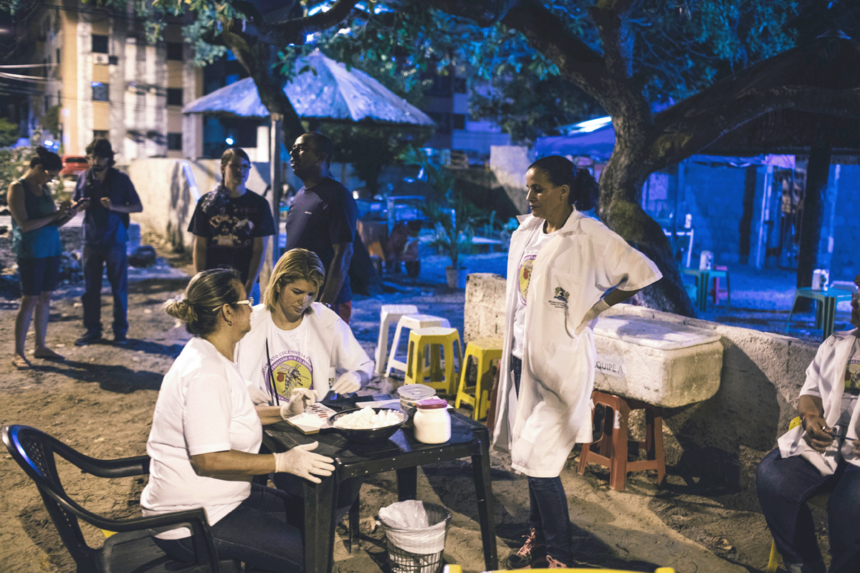“`html
The World Health Organization (WHO) has officially recognized Brazil for successfully eradicating lymphatic filariasis as a public health concern.
“The elimination of a disease is a significant achievement that requires steadfast dedication,” stated Dr. Tedros Adhanom Ghebreyesus, WHO Director-General. “I commend Brazil for its commitment to liberating its citizens from the burden of this painful, disfiguring, and stigmatizing illness. This accomplishment exemplifies the remarkable strides we have made against neglected tropical diseases and serves as an inspiration to other nations still battling lymphatic filariasis, showing them that eradication is possible.”
Lymphatic filariasis, often referred to as elephantiasis, is a debilitating parasitic infection transmitted by mosquitoes. For centuries, it has impacted millions globally, leading to severe pain, chronic swelling, significant disability, and social stigma.
Strategic National Initiatives
In recent decades, Brazil has undertaken comprehensive measures aimed at eliminating lymphatic filariasis. These initiatives include the establishment of a national strategy in 1997 focused on combating this disease through mass distribution of antiparasitic medications and vector control efforts alongside robust surveillance in high-risk areas. As a result of these concerted actions, Brazil successfully halted disease transmission by 2017.
The goal of eliminating lymphatic filariasis was also integral to the Brasil Saudável program, which promotes multisectoral collaboration aimed at addressing socially determined health issues with active participation from civil society and those affected by the disease itself. Launched in February 2024 by President Luiz Inácio Lula da Silva during an event attended by Dr. Tedros Adhanom Ghebreyesus and Dr. Jarbas Barbosa from PAHO/WHO Americas Region Directorate; this initiative will continue monitoring potential resurgence post-elimination.
“This achievement reflects years of hard work and cooperation among healthcare professionals, researchers, and government officials in Brazil,” remarked Dr. Jarbas Barbosa. “Brazil’s extensive healthcare system combined with specialized laboratory capabilities and effective surveillance were crucial in breaking the transmission cycle while inspiring other nations towards eliminating both lymphatic filariasis and other neglected tropical diseases.”
Global Achievements in Disease Elimination
With this milestone reached, Brazil joins 19 additional countries that have been validated by WHO for having eliminated lymphatic filariasis as a public health issue—these include Malawi and Togo (Africa), Egypt and Yemen (Eastern Mediterranean), Bangladesh along with Maldives Sri Lanka & Thailand (South-East Asia), plus Cambodia among others across the Western Pacific region.
Within the Americas region specifically three endemic countries—Dominican Republic Guyana & Haiti—still require mass drug administration efforts to cease transmission while striving towards elimination goals.
Brazil not only becomes the 20th nation validated for eradicating lymphatic filariasis but also marks its position as the 53rd country worldwide to eliminate at least one neglected tropical disease altogether.
A Note on Lymphatic Filariasis
Lymphatic filariasis remains classified under neglected tropical diseases caused when humans are infected via mosquito-borne parasites typically acquired during childhood leading eventually toward hidden damage within their lymphatics system over time resulting later visible manifestations such as lympheodema or elephantiasis causing permanent disabilities affecting mental social financial aspects contributing further stigma poverty cycles around afflicted individuals’ lives overall negatively impacting communities they belong too!
Tackling Lymphatic Filariasis: Strategies for Success
The successful elimination strategy hinges upon halting infection spread through preventive chemotherapy methods recommended by WHO involving mass drug administration (MDA). MDA entails providing annual doses across entire at-risk populations effectively reducing microfilariae levels within bloodstreams thus preventing parasite transmission back into mosquitoes themselves!
A staggering total estimated figure indicates approximately 657 million individuals residing across thirty-nine different territories remain situated within regions necessitating preventive chemotherapy measures against ongoing infections! Notably Costa Rica Suriname Trinidad Tobago were removed from endemic lists back since two thousand eleven showcasing progress achieved thus far! The 2021–2030 roadmap targeting neglected tropical diseases aims towards controlling preventing eradicating twenty distinct illnesses/disease groups before reaching year two thousand thirty!
Source
“`





